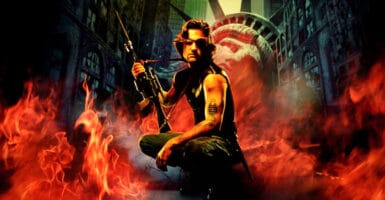The Star Trek Episode Patrick Stewart Filmed Fully Nude
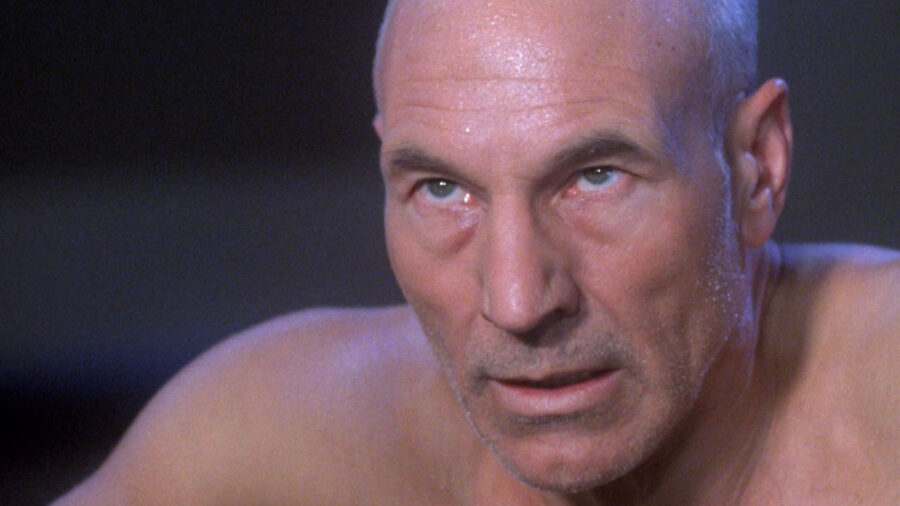
Patrick Stewart’s work as Jean-Luc Picard in Star Trek: The Next Generation, its subsequent films, and Star Trek: Picard has many high points, but one particular standout is the two-part TNG episode “Chain of Command.” Not only did this episode give Stewart the opportunity to work with an actor he had long admired, but it also included doing a great deal of research into the dark subject of torture. Stewart’s performance in the episode is one of his finest, and it still stands as one of his favorites in the series.
Patrick Stewart might have seemed a somewhat unlikely choice to play the captain of the new Enterprise in Star Trek: The Next Generation in 1987, given that his background to that point was primarily in theater, and largely as a Shakespearean actor. But the Royal Shakespeare Company member of course proved to be perfect for the role, and he is actually one of many Shakespearean actors to appear in Star Trek. In fact, the franchise even attracted one of the actors he admired most in the world, David Warner, who also had performed with the Royal Shakespeare Company.
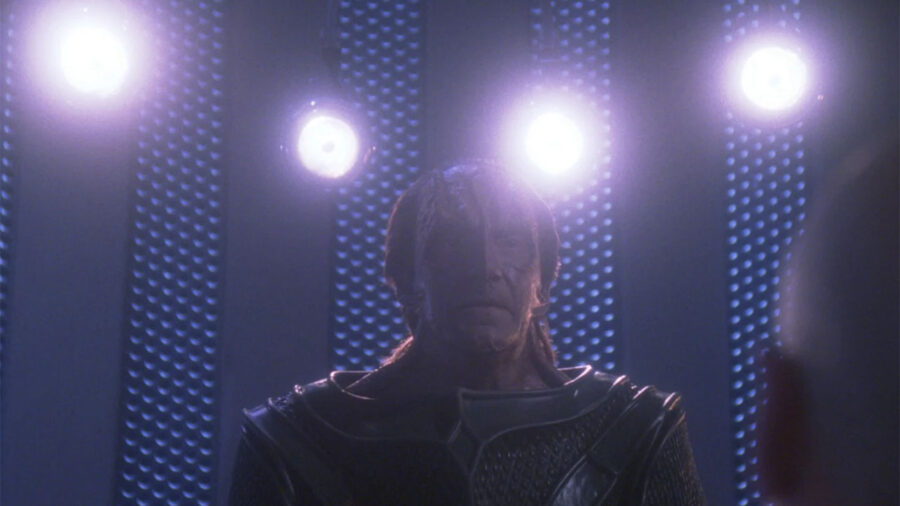
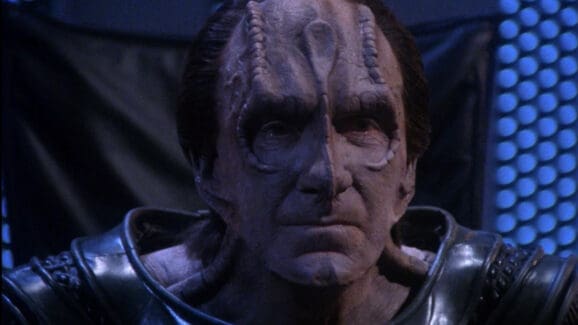
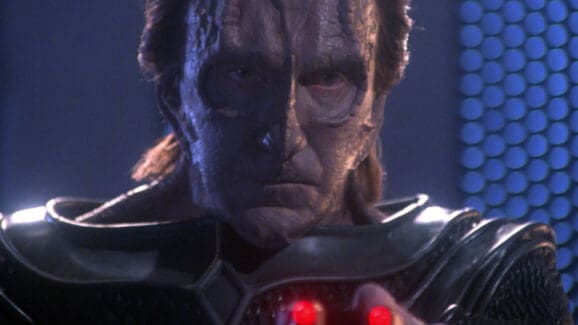
As Patrick Stewart mentions in his memoir Making It So, David Warner was an actor he considered among the greatest he had ever seen, so he was very happily surprised to find that his fellow Shakespearean veteran had been cast as Gul Madred in the episode “Chain of Command.” In the episode, Picard is captured by the Cardassian and tortured for information. This led Stewart to do a great deal of research to make sure he honored the experiences of torture victims and that the realities of torture were portrayed accurately and effectively.
A longtime member of Amnesty International, Patrick Stewart was well aware of the sensitivity of the issue of torture and the importance of sharing the message that torture has never been shown to be an effective method of gathering intelligence. He also wanted to be certain that the inhumanity of torture was highlighted in the episode. To do this, according to the book Star Trek: The Next Generation 365 by Paula M. Block and Terry J. Erdmann, the actor put a great deal of research into the subject of torture and its effects to get both the physical and the emotional story right for the episode.
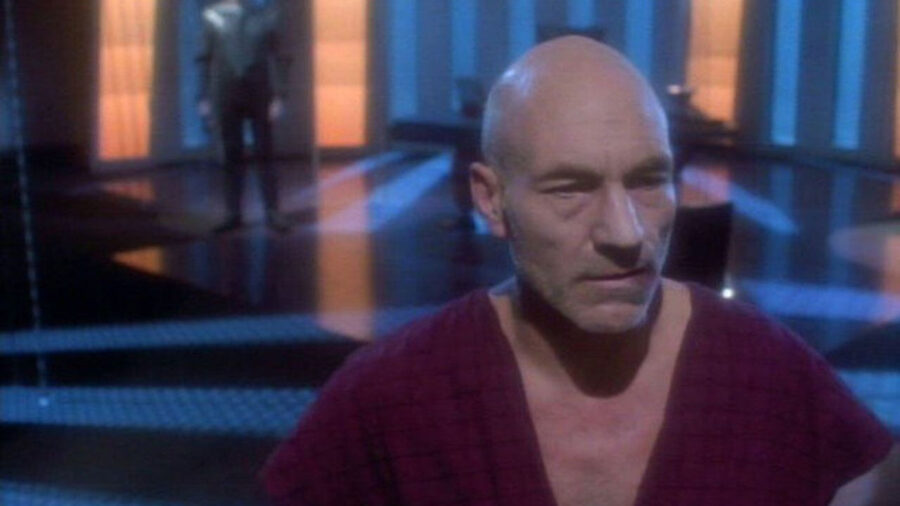
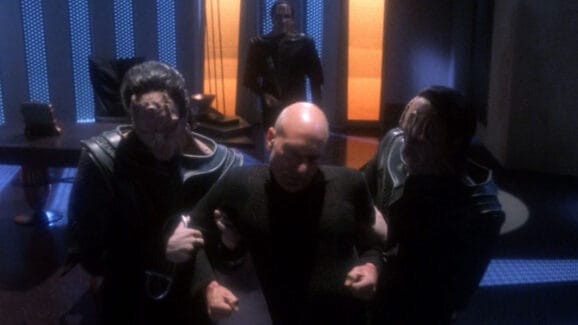
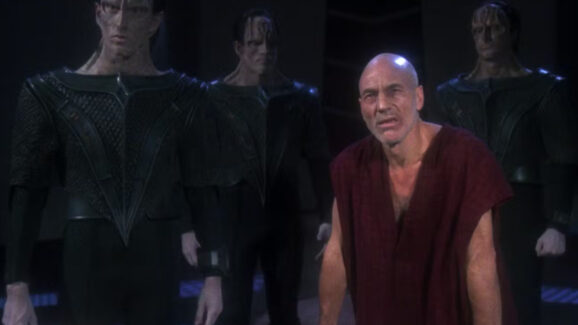
As part of his research, Patrick Stewart watched videos of torture survivors telling their stories and even an extensive interview with a person who had been a torturer, who relayed their experiences of what it was like to cause harm to others. In the episode, Madred famously tries to force Picard to tell him there are five lights shining on him, when there are really four. Somewhat sadly, the emotionally wrenching moment of Picard shouting at Madred, “There are four lights!” has become a popular internet meme, which tends to cheapen the impact of the moment.
It comes, though, at the end of a long captivity wherein Picard is isolated, starved, stripped naked, and subjected to excruciating pain. Patrick Stewart was deeply committed to his performance, so much so that he actually performed the scenes nude instead of with the usual flesh-colored garments that are generally worn by actors in movies and television. Again, according to his memoir, Stewart had some experience by that point with nudity on stage, so it is not surprising that he was interested in being as fully exposed in the scene as Picard was in the story.
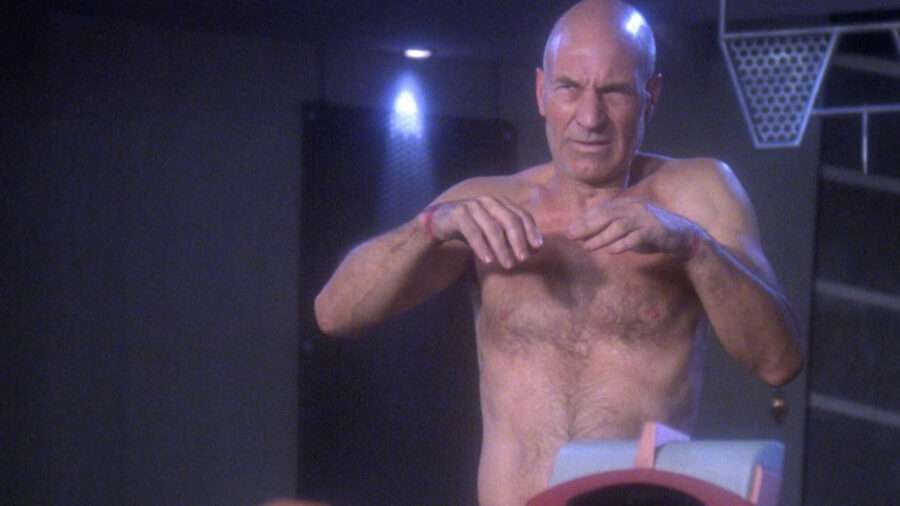
This intense dedication has made “Chain of Command” one of the most widely lauded episodes of Star Trek: The Next Generation, if not the entirety of Star Trek. True to Patrick Stewart’s goal, the episode also exposed many viewers of Star Trek: The Next Generation to the horrors of torture and continues to share the message that torture is unacceptable in all its forms. Having Stewart and Warner, both seasoned Shakespearean actors, at the heart of this gut-wrenching and emotionally compelling story gives the episode a dramatic weight that few in the 1990s expected from a science fiction television show.
True to his character, however, Patrick Stewart dedicated himself fully to his work and turned in a performance of remarkable complexity and depth that continues to resonate with social urgency to the present day.












